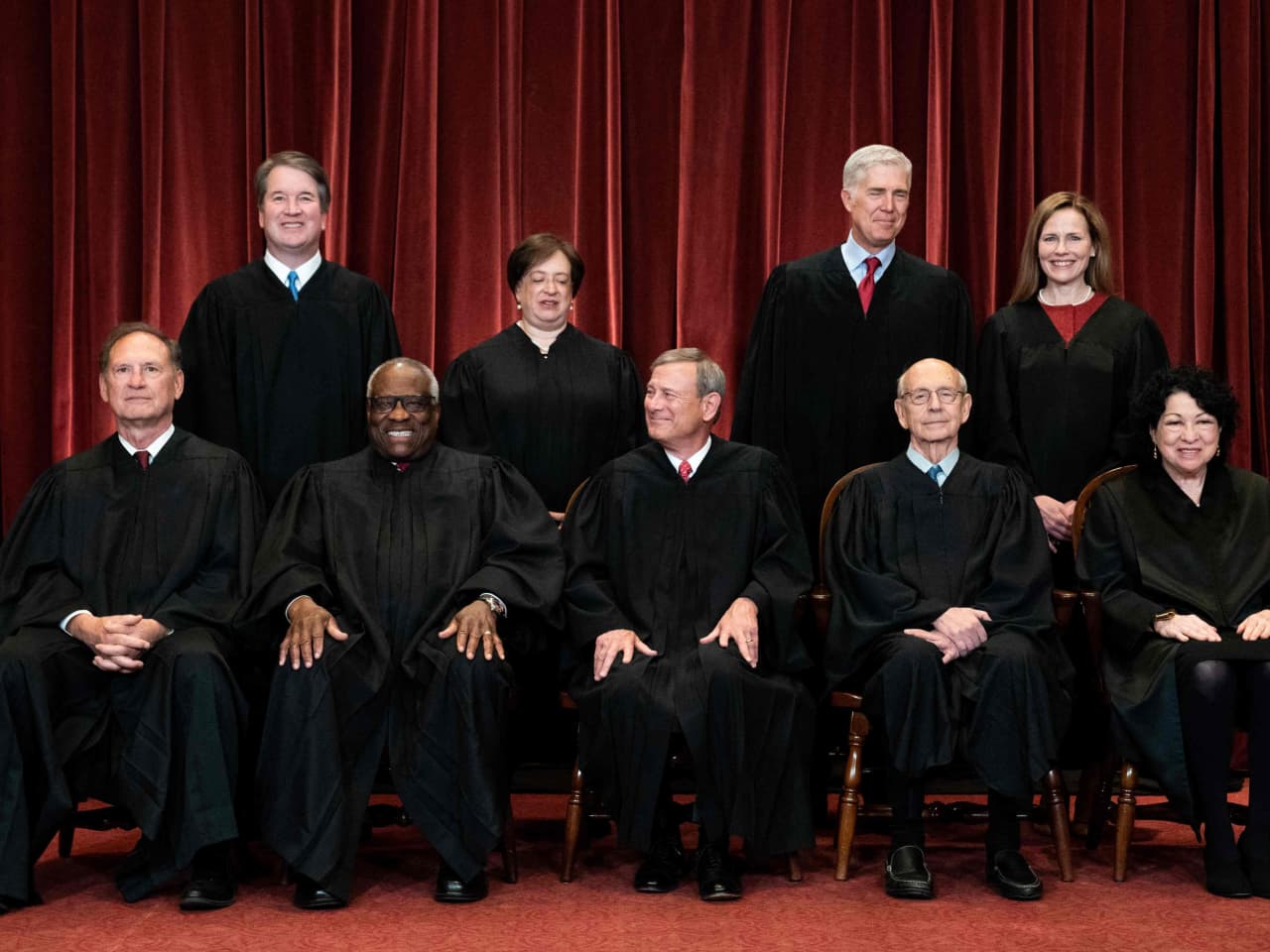The Supreme Court’s conservative majority is allowing evictions to resume across the U.S., blocking the Biden administration from enforcing a temporary ban that was put in place because of the coronavirus pandemic.
The vote was split 6-3 between the court’s conservative and liberal justices, with John Roberts, Clarence Thomas, Samuel Alito, Neil Gorsuch, Brett Kavanaugh, and Amy Coney Barrett voting to end the eviction moratorium, and Stephen Breyer, Sonia Sotomayor, and Elena Kagan voting to keep it.
Justices said in an unsigned opinion Thursday that the Centers for Disease Control and Prevention, which reimplemented the moratorium on August 3, lacked the authority to do so under federal law without explicit congressional authorization.
‘It would be one thing if Congress had specifically authorized the action that the CDC has taken,’ the court wrote. ‘But that has not happened. Instead, the CDC has imposed a nationwide moratorium on evictions in reliance on a decades-old statute that authorizes it to implement measures like fumigation and pest extermination. It strains credulity to believe that this statute grants the CDC the sweeping authority that it asserts.’
Real estate groups in Georgia and Alabama had argued this point and told the high court that the moratorium caused property owners across the nation significant financial hardships, USA Today reports.
Property owners had to continue to pay expenses while not receiving payments from renters. They were also banned from evicting nightmare tenants, who were given free reign to make their neighbors’ lives a misery.
As of August 25, nearly 90% of the federal funds meant to help landlords make up for the loss of funds had not been distributed, the U.S. Treasury Department said in a statement.
Roughly 3.5 million people in the United States said they faced eviction in the next two months, according to Census Bureau data from early August.
The Supreme Court had originally allowed the eviction freeze to continue to July in a 5-4 vote, but Kavanaugh, who voted to keep it, indicated that he would vote against any further extension.
Roberts followed suit and voted against the moratorium with Kavanagh on Thursday.
In his dissenting opinion, Breyer asserted that the court should not end the moratorium on an expedited basis.
‘Applicants raise contested legal questions about an important federal statute on which the lower courts are split and on which this court has never actually spoken,’ Breyer wrote. ‘These questions call for considered decision making, informed by full briefing and argument. Their answers impact the health of millions.’
Click here to read more.
Source: Daily Mail
